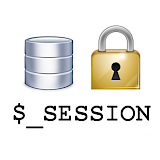php extension openssl ubuntu
Php extension openssl ubuntu
The OpenSSL library also has additional requirements for normal operation at run-time. Most notably, OpenSSL requires access to a random or pseudo-random number generator; on most Unix and Unix-like platforms (including Linux), this means that it must have access to a /dev/urandom or /dev/random device.
Note: Note to Win32 Users
Additionally, if you are planning to use the key generation and certificate signing functions, you will need to install a valid openssl.cnf file on your system. We include a sample configuration file in our win32 binary distributions, in the extras/openssl directory.
In your installation, you need to decide whether to install the configuration file in the default path or whether to install it someplace else and use environmental variables (possibly on a per-virtual-host basis) to locate the configuration file. Note that it is possible to override the default path from the script using the options of the functions that require a configuration file.
Changelog
User Contributed Notes 8 notes
Having recently installed Apache2.2 with PHP 5.2.17 on my Windows 7 development machine, I want to pass along my findings about how to set things up to load the correct versions of the OpenSSL DLLs. Many people have posted elsewhere about the «DLL Hell» that results if the a wrong version is loaded.
Having verified the PHP installation, turn on the OpenSSL support by uncommenting the line
in php.ini, which you will find in the PHP directory (I’ll assume you made that c:/PHP). Next check the location of php_openssl.dll, which you should find in c:/PHP/ext. Also in php.ini find the key extension_dir, and change its value to c:/php/ext. Next, put this location on the end of your PATH (there’s no need to reboot).
At this point, when you start Apache it will attempt to load php_openssl.dll, but if your setup is anything like mine you will see an error. I prefer to start Apache manually, and the error appears in a dialog box: «The ordinal 4114 could not be located in the dynamic link library LIBEAY32.dll». (I’m not sure whether you would get this message if you started Apache as a service). The Apache log also contains an error message saying that php_openssl.dll cannot be loaded, though that message doesn’t name libeay32.dll. Welcome to DLL Hell.
Libeay32.dll enters the picture because php_openssl.dll depends on it (and also on ssleay32.dll). What I think happens is that Apache first tries to load php_openssl.dll programmatically from the path specified by the extension_dir key. But then, the loading of the so-called dependent DLLs is left to Windows’ default mechanism. If Windows finds an incompatible version of a dependent DLL, you get the error.
So clearly the fix is to ensure that the correct version of libeay32.dll is loaded. On my machine, at least three other processes have loaded various versions of this same DLL. They include the Mozy backup client, Windows Explorer (because Mozy installs support in Explorer) and the OpenOffice suite. My machine is quite different in this respect from a dedicated server on which one probably wants as few extraneous processes as possible. Presumably on a server one can follow advice that suggests copying the dlls to the system32 directory, for example. But I’m not about to mess with my other programs by making system-wide changes.
So what to do? I didn’t find the available information on how Windows searches for DLLs to be very useful, mainly because I didn’t understand it. But it does say that the first place Windows looks is «The directory from which the application loaded.»
Установка PHP и модулей на Ubuntu/Debian
Установка PHP 5 как модуля Apache:
Установка PHP 7 как модуля Apache:
Установка PHP 5 как PHP-FPM:
Установка PHP 7 как PHP-FPM
Модули
В Debian и Ubuntu зачастую установка модулей PHP не требует каких-то сложных манипуляций. Для того, чтобы посмотреть, что Вы можете поставить прямо сейчас, нужно сделать:
Давайте для примера установим GD для работы с изображениями:
Либо php-fpm, смотря, что используете Вы:
Чтобы посмотреть список модулей php, который прямо сейчас подключен, можно запустить:
Nginx, Php-Fpm и что это вообще?
Почему timeout для curl в php необходим
Угадайте самый медленный фреймворк. И это не Laravel
Есть распространенное мнение, что Laravel почти самый медленный фреймворк, что даже его название нужно читать медленно и только одним пользователем на 1 ядро CPU. Но к счастью, это не так
Curl в PHP
Вводная статья о том, как использовать сессии в PHP
IoT Highload: особенности и подводные камни
Особенности серверных приложений, работающих с сетью IoT-устройств на практике и в теории
Nginx, Php-Fpm и что это вообще?
Почему timeout для curl в php необходим
Угадайте самый медленный фреймворк. И это не Laravel
Есть распространенное мнение, что Laravel почти самый медленный фреймворк, что даже его название нужно читать медленно и только одним пользователем на 1 ядро CPU. Но к счастью, это не так
Curl в PHP
Вводная статья о том, как использовать сессии в PHP
IoT Highload: особенности и подводные камни
Особенности серверных приложений, работающих с сетью IoT-устройств на практике и в теории
Как установить OpenSSL в Ubuntu 20.04 LTS
Как установить OpenSSL в Ubuntu 20.04 LTS
В этом руководстве мы покажем вам, как установить OpenSSL в Ubuntu 20.04 LTS. Для тех из вас, кто не знал, OpenSSL — это набор инструментов с открытым исходным кодом для протоколов Transport Layer Security (TLS) и Secure Sockets Layer (SSL), а также библиотека криптографии. OpenSSL используется многими программами, такими как веб-сервер Apache, PHP и многими другими, обеспечивая поддержку различных криптографических алгоритмов.
В этой статье предполагается, что у вас есть хотя бы базовые знания Linux, вы знаете, как использовать оболочку, и, что наиболее важно, вы размещаете свой сайт на собственном VPS. Установка довольно проста и предполагает, что вы работаете с учетной записью root, в противном случае вам может потребоваться добавить ‘ sudo ‘ к командам для получения привилегий root. Я покажу вам пошаговую установку OpenSSL на Ubuntu 20.04 (Focal Fossa). Вы можете следовать тем же инструкциям для Ubuntu 18.04, 16.04 и любого другого дистрибутива на основе Debian, например Linux Mint.
Установите OpenSSL на Ubuntu 20.04 LTS Focal Fossa
Шаг 1. Во-первых, убедитесь, что все ваши системные пакеты обновлены, выполнив следующие apt команды в терминале.
Шаг 2. Установка OpenSSL на Ubuntu 20.04.
Теперь скачиваем исходный код OpenSSL с официальной страницы:
Затем мы настраиваем и компилируем OpenSSL:
После установки OpenSSL целесообразно связать разделяемые библиотеки для него, чтобы они загружались во время выполнения:
Вставьте каталог пути к библиотеке OpenSSL:
Затем перезагрузите динамическую ссылку, введя следующую команду:
Шаг 3. Настройка двоичного файла OpenSSL.
Теперь отредактируйте файл с помощью редактора nano: /etc/ environment
Добавьте следующую строку:
Сохрани и закрой. Затем перезагрузите файл среды, чтобы ввести новую переменную PATH:
Чтобы проверить установку и версию OpenSSL, вы можете выполнить следующую команду:
Ваш результат должен быть следующим:
You must enable the openssl extension to download files via https
I wanted to install Zend Framework 2. So I downloaded the skeleton application. As mentioned in the ZF2 manual, we have to issue the command
Inside the skeleton.
But I’m getting an error
You must enable the openssl extension to download files via https
Then I enabled the ssl_module in my wamp, I checked the php_ini file and I can see the following line
Still I’m getting the same error. Anybody having any clue what I missed out?
13 Answers 13
PHP CLI SAPI is using different php.ini than CGI or Apache module.
Find line ;extension=php_openssl.dll in wamp/bin/php/php#.#.##/php.ini and uncomment it by removing the semicolon ( ; ) from the beginning of the line.
Verify you are editing the correct php.ini file.
«WAMP uses different php.ini files in the CLI and for Apache. when you enable php_openssl through the WAMP UI, you enable it for Apache, not for the CLI. You need to modify C:\wamp\bin\php\php-X.Y.Z\php.ini to enable it for the CLI.»
make sure you have correct path to extension folder
by default it is commented with ; character
I also had the same issue while playing around Zend Framework 2 and composer. I’m using PHP 5.4 (installed via macports) and my solution was to install openssl for PHP 5.4 via macports as well.
I have faced this problem, but configuging openssl (also for cli) did not help.
I have updated composer and this sloved my problem.
I use XAMPP. In C:\xampp\php\php.ini, the entry for openssl did not exist, so I added «extension=php_openssl.dll» on line 989, and composer worked.
You need to enable «extension=php_openssl.dll» in both files (php and apache). my pc files path are these :
Uttam, if your issue is not solved then try the follwoing 3 step approach. It worked for me as I had exactly same issue.
step1: click on wamp tray icon.
step2: goto menu apache->apache modules
step3: click on menu item «ssl_module»
it will automatically restart wamp. if wamp not restarted automatically then restart it through wamp tray menu-> Restart All services. After restart confirm that «ssl_module» coming as ticked under menu apache->apache modules
Howto ubuntu 18.04 install / activate PHP extension ext-mcrypt
I am installing a fresh kubuntu system 18.04, which is using by default php7.2
A composer install for my current software project gibves me this error message:
The requested PHP extension ext-mcrypt * is missing from your system. Install or enable PHP’s mcrypt extension.
Other than before there is no php-mcrypt available and other articles like this http://aryo.lecture.ub.ac.id/easy-install-php-mcrypt-extension-on-ubuntu-linux/ don’t help since an analog php-mcrypt or php7-mcrypt does not exists.
How can I get a setup, which fulfills my requirement?
does not find an installation candidate.
Is there a difference between php 7.1 and 7.2?
not surprisingly this also does not do the trick:
2 Answers 2
First Check whether the mcrypt PHP module is present:
To install the mcrypt PHP module we first need to satisfy the following prerequisites:
Now we are ready to install mcrypt PHP module on our Ubuntu 18.04 system:
Open the /etc/php/7.2/cli/php.ini file and insert:
All done. When successful, checking for the presence of the mcrypt PHP module should produce the following output:
The mcrypt extension is included in PHP 5.4 through PHP 7.1. It was removed from PHP 7.2 and moved to an unofficial PECL extension because the mcrypt library is no longer maintained.
For PHP 7.2+, PHP instead uses libsodium as a cryptography library. ServerPilot builds PHP 7.2+ with the official libsodium extension. New PHP code should be written to use libsodium rather than mcrypt.










